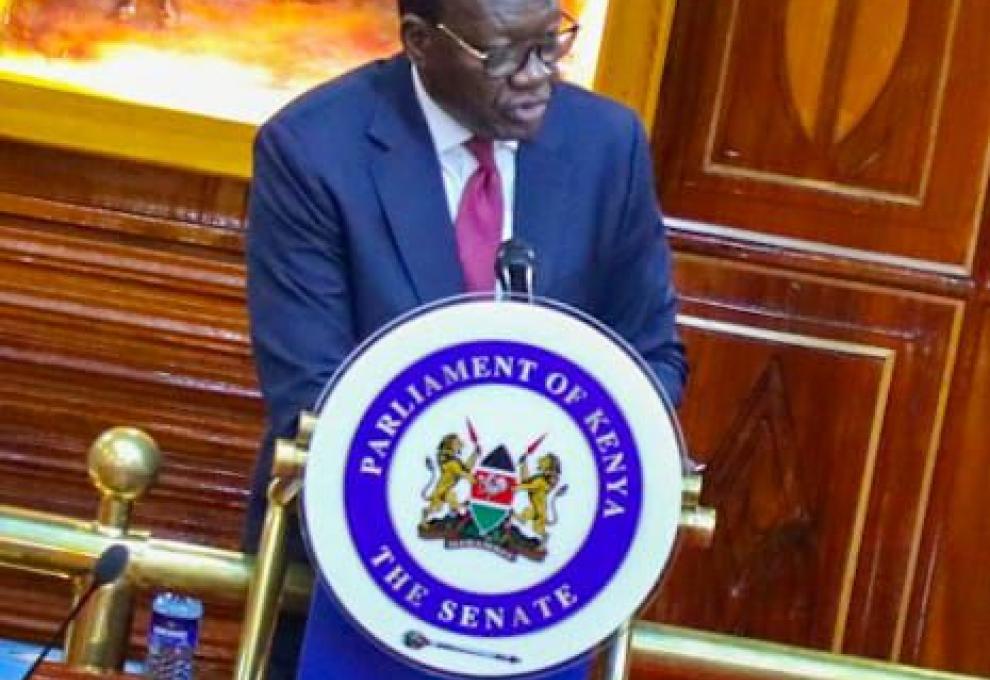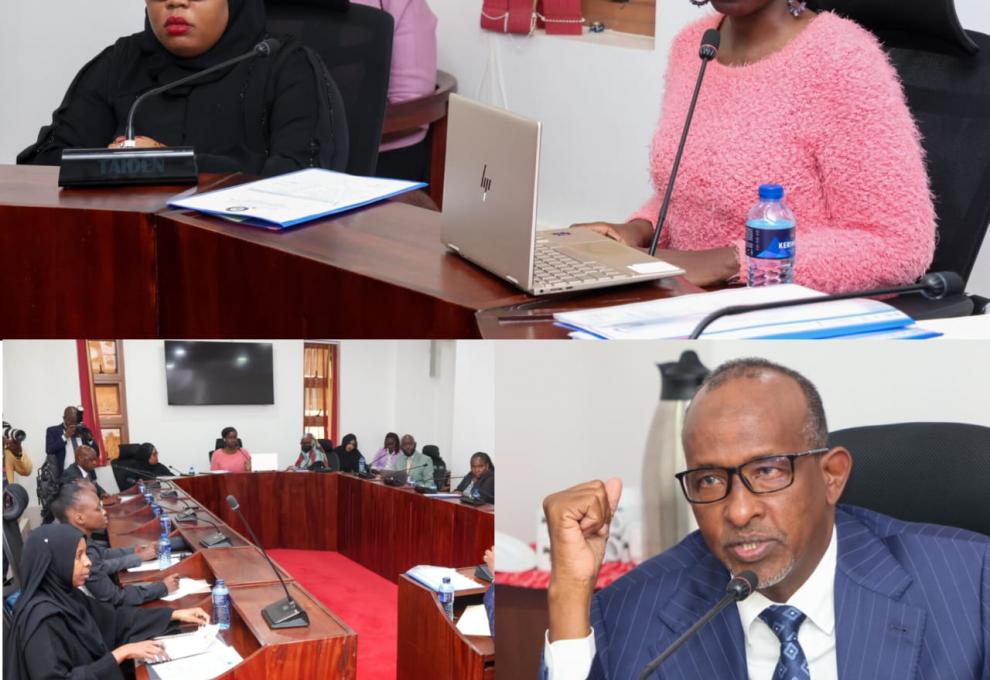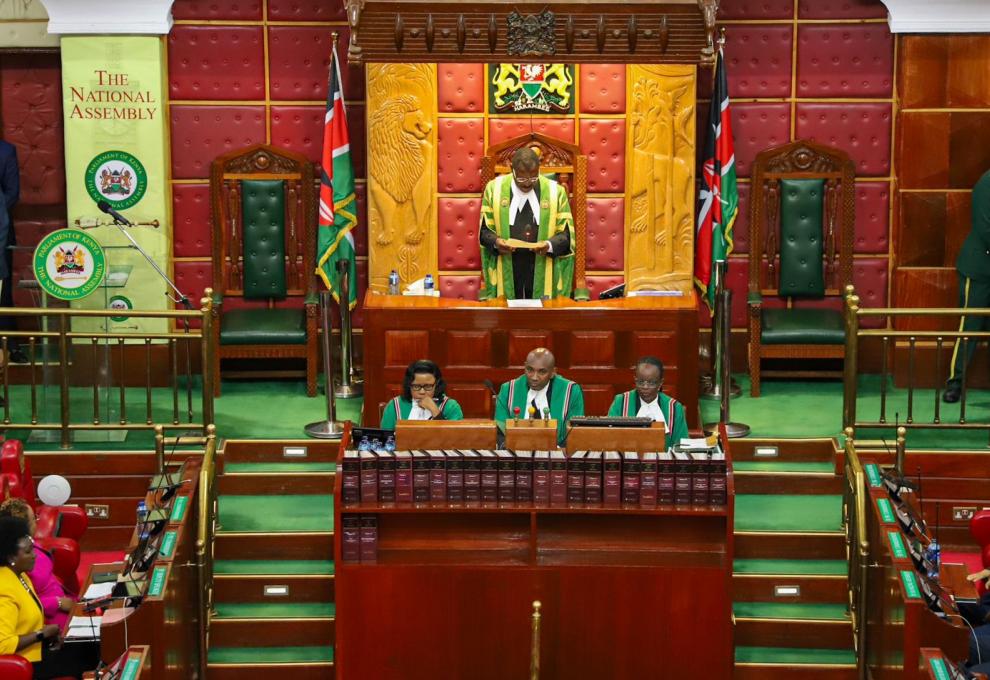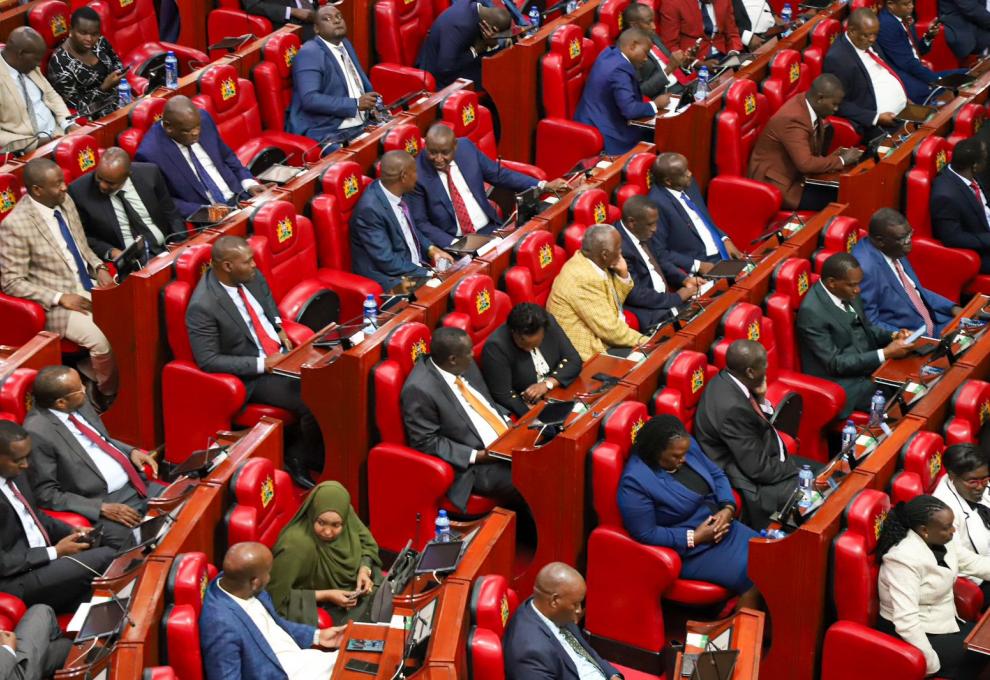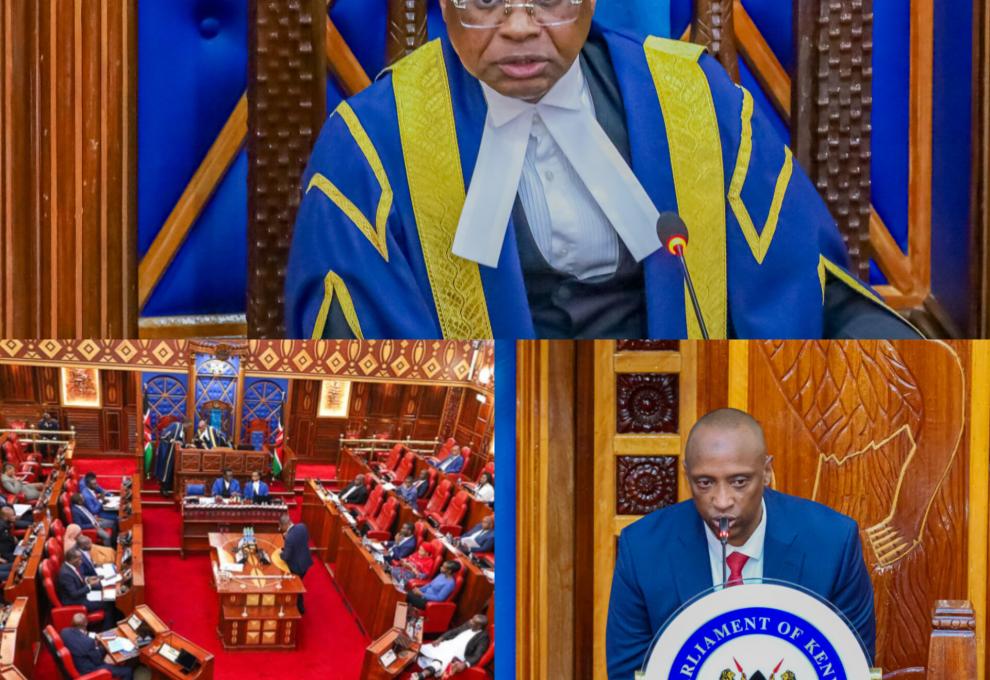𝐓𝐫𝐚𝐧𝐬𝐟𝐨𝐫𝐦𝐢𝐧𝐠 𝐓𝐢𝐝𝐞𝐬: 𝐊𝐞𝐧𝐲𝐚'𝐬 𝐁𝐚𝐧𝐝𝐚𝐫𝐢 𝐌𝐚𝐫𝐢𝐭𝐢𝐦𝐞 𝐀𝐜𝐚𝐝𝐞𝐦𝐲 𝐚𝐭 𝐭𝐡𝐞 𝐇𝐞𝐥𝐦 𝐨𝐟 𝐁𝐥𝐮𝐞 𝐄𝐜𝐨𝐧𝐨𝐦𝐲 𝐆𝐫𝐨𝐰𝐭𝐡
Cabinet Secretary for Mining, Blue Economy and Maritime Affairs, Hon. Salim Mvurya has defended the Bandari Maritime Academy's (BMA) role in the Senate. The discussions revolved around the Academy's transformative impact on maritime training, its success in placing graduates in global job markets, and its part in the government's commitment to train a significant number of seafarers annually. The session reaffirmed BMA's crucial role in advancing Kenya's Blue Economy and driving national economic growth.
Here are some key excerpts from the interview when the CS appeared before the Senate to respond to questions:
𝐒𝐞𝐧𝐚𝐭𝐨𝐫 𝐕𝐞𝐫𝐨𝐧𝐢𝐜𝐚𝐡 𝐌𝐚𝐢𝐧𝐚 (𝐍𝐨𝐦𝐢𝐧𝐚𝐭𝐞𝐝): What was the reasoning and effect of detaching Bandari College from the Kenya Ports Authority.
𝐂𝐒 𝐒𝐚𝐥𝐢𝐦 𝐌𝐯𝐮𝐫𝐲𝐚: Bandari College was established by the Kenya Ports Authority (KPA) in the 1980s for in-house port operations and cargo handling training. Over the years, due to changes in the Maritime sector, the College expanded its training to include global maritime sector skills, enabling employability beyond KPA operations. In 2017, with the blue economy sector being adopted as the 8th sector of the economic pillar in Kenya Vision 2030, the government decided to transform Bandari College into a semi-autonomous entity, the Bandari Maritime Academy. This transformation was intended to meet the growing skill demands for the maritime and blue economy sectors. As a result, the Academy has experienced a significant increase in the numbers trained, with over 5000 trained in the current financial year. The Academy also enjoys the status of being the only International Maritime Organization (IMO) certified Maritime Training Institution in Kenya
𝐒𝐞𝐧𝐚𝐭𝐨𝐫 𝐕𝐞𝐫𝐨𝐧𝐢𝐜𝐚𝐡 𝐌𝐚𝐢𝐧𝐚: Can you provide the number of seafarers trained by Bandari College and sent to the local and international markets?
𝐂𝐒 𝐒𝐚𝐥𝐢𝐦 𝐌𝐯𝐮𝐫𝐲𝐚 Since its inception in 2019, Bandari Maritime Academy has trained a considerable number of individuals in modular and short courses. The specific numbers vary across different courses, with some courses training as many as over a thousand individuals since 2019. The Academy is currently planning to conduct tracer studies to confirm employment trends for its graduates.
𝐒𝐞𝐧𝐚𝐭𝐨𝐫 𝐕𝐞𝐫𝐨𝐧𝐢𝐜𝐚𝐡 𝐌𝐚𝐢𝐧𝐚 Is Bandari College capable and appropriate to meet the government's pledge of training 250 seafarers each year?
𝐂𝐒 𝐒𝐚𝐥𝐢𝐦 𝐌𝐯𝐮𝐫𝐲𝐚: Yes, Bandari College has both the capability and the resources to meet the government's commitment. The Academy has developed various courses and programs that are in demand by seafarers and has enhanced its capacity to train at least 5000 seafarers per year in both short and long-term courses. It has received approvals from several agencies, such as the TVETA, KMA, NTSA, NITA, and KNQA to offer various courses. It also possesses numerous training resources including workshops, classrooms, simulators, training boats, and port operation equipment. The Academy has established partnerships with other entities, such as the Kenya Shipyard Limited, Kenya Coast Guard Service, and Kenya Ports Authority, for use of their facilities when needed. Therefore, the Academy is more than equipped to train the required 250 seafarers per year.
𝐒𝐞𝐧𝐚𝐭𝐨𝐫 𝐁𝐨𝐧𝐲 𝐊𝐡𝐚𝐥𝐰𝐚𝐥𝐞 (𝐊𝐚𝐤𝐚𝐦𝐞𝐠𝐚): How do we ensure that our highly skilled young people secure employment in leading global seaports such as Brussels, Singapore, and Dubai?
𝐒𝐚𝐥𝐢𝐦 𝐌𝐯𝐮𝐫𝐲𝐚: We have established Memoranda of Understanding (MOUs) with international shipping lines, ensuring that our young professionals are provided with opportunities once they graduate. In fact, just last month, we celebrated the employment of 500 seafarers who have joined shipping lines operating routes through Dubai, Miami, and Durban.
𝐒𝐞𝐧𝐚𝐭𝐨𝐫 𝐀𝐚𝐫𝐨𝐧 𝐂𝐡𝐞𝐫𝐮𝐢𝐲𝐨𝐭 (𝐊𝐞𝐫𝐢𝐜𝐡𝐨): Do you implement any prerequisite conditions before allowing shipping lines access to our waters, perhaps setting employment targets for seafarers? Additionally, considering the trade imbalance with our partner countries, do you utilise the specialised skills of these trained young individuals as part of the negotiation process to rectify this imbalance?
𝐂𝐒 𝐒𝐚𝐥𝐢𝐦 𝐌𝐯𝐮𝐫𝐲𝐚: To stimulate investments, we're exploring the possibility of constructing a shipyard while also designating space for dry docking and vessel maintenance. As part of our MOU with Mediterranean Shipping Lines, for instance, we've established an annual recruitment target of 1,500 young professionals. Regarding our bilateral negotiations with Qatar and South Korea in the shipping and maritime sector, we are presently discussing the number of opportunities they can offer our youth each year. Once these numbers are confirmed, we leverage the capabilities of our Bandari Maritime Academy to equip them with the necessary qualifications for these jobs. Additionally, we are collaborating with the Ministry of Labour to address welfare-related concerns of working overseas.
S𝐞𝐧𝐚𝐭𝐨𝐫 𝐖𝐚𝐤𝐢𝐥𝐢 𝐇𝐢𝐥𝐥𝐚𝐫𝐲 𝐒𝐢𝐠𝐞𝐢 (𝐁𝐨𝐦𝐞𝐭): Do the recruitment and training statistics you've shared encompass youths from neighbouring countries, or are they solely local?
𝐂𝐒 𝐌𝐯𝐮𝐫𝐲𝐚 These figures represent Kenyan youth exclusively. As I conclude, I would like to highlight that we have partnered with county governments and have sought the support of Members of Parliament in raising awareness of these opportunities available to our youth. Previously, the processes for recruitment and training were not well defined, which underlines the need for increased awareness. It is essential that people understand that while the basic requirements for these opportunities are straightforward, one must complete specific courses to become a seafarer. This is where increased awareness and local investment play a crucial role. Moving forward, we aim to expand recruitment and training nationwide and enhance the training academy's role in recruitment to ensure a transparent and accountable process.












